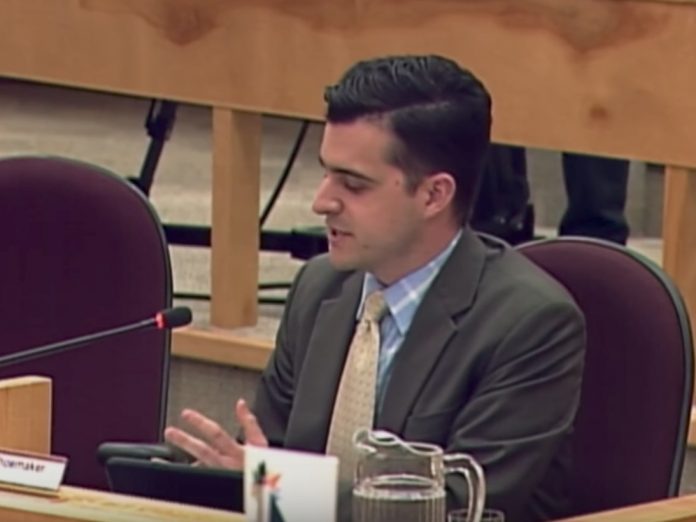Sault Ste. Marie’s city council has unanimously passed a motion to look into the impact of construction labour monopolies on the municipality and its taxpayers. Open tendering advocates say it’s an important first step in the right direction.
Coun. Matthew Shoemaker tabled the resolution, which calls on the city to look at the cost, administrative work and feasibility of pursuing a case at the Ontario Labour Relations Board (OLRB) to become a non-construction employer, which would allow the city to openly and freely tender all construction projects.
View the city council discussion here
The city has been limited by the OLRB since the 1980s to accept bids for city infrastructure from only two unions: the Labourers International Union of North America and International Brotherhood of Carpenters and Joiners.
“This is not a union versus non-union issue, this is a union monopoly: one union, or two in our case, have a monopoly on our city construction work to the exclusion of both non-unionized and every other unionized workforce in the city and across the province,” Shoemaker said in a published report.
“So we are prohibited from using other unions on city jobs and that’s just not right,” he said. “It means less competition and it means higher costs in my opinion. We’re not trying to harm any particular unions…If we are decertified, I hope that they (the two unions they are bound to) continue to submit competitive bids and I hope if theirs is the best bid that they win the contract. But I’m not satisfied that we should just accept that we can only take their bids.”
Open shop advocate The Progressive Contractors Association of Canada (PCA) supports Shoemaker’s resolution. Karen Renkema, the PCA’s senior manager, public affairs, says the lack of competition drives up construction costs.
“Sault Ste. Marie would be realizing 20 to 30 per cent cost savings on projects or be able to do more projects in the municipality that have been shelved or delayed because of the increased cost on projects,” Renkema says. “The other part of this conversation that is very important is the fairness perspective and I don’t think anybody would suggest it’s fair that local contractors cannot bid on local work and local workers can’t work on jobs that their tax dollars are paying for just because they chose to be a member of a different union or chose not to be a member of a union at all.”
Significant Sault. Ste Marie infrastructure projects expected to be built soon include a major $40 million sewage treatment plant refurbishment. If the savings are as great as Renkema indicates, that would suggest a benefit to taxpayers of upwards of $8 to $10 million.
“If you save even eight per cent on a $40 million project that’s just under $4 million that is money that can be put back into our roads, can be put back into other city infrastructure projects to reducing the tax burden on taxpayers,” Shoemaker in the published interview.
There of course would be costs in applying to OLRB to change the rules, but these would be dwarfed by the savings, he indicated.
The Greater Essex and County District School board obtained a ruling from the OLRB in Sept. 2016, after contesting their construction employer designation, and can now openly tender construction work.
“The Essex decision last fall provided a pathway for other public entities to follow in order to be decertified,” Renkema was quoted as saying.
For years, PCA has urged the Ontario government to amend its labour laws so that all cities can openly tender construction work, a position shared by the Christian Labour Association of Canada (CLAC).
City staff is expected to provide its report in the fall.

